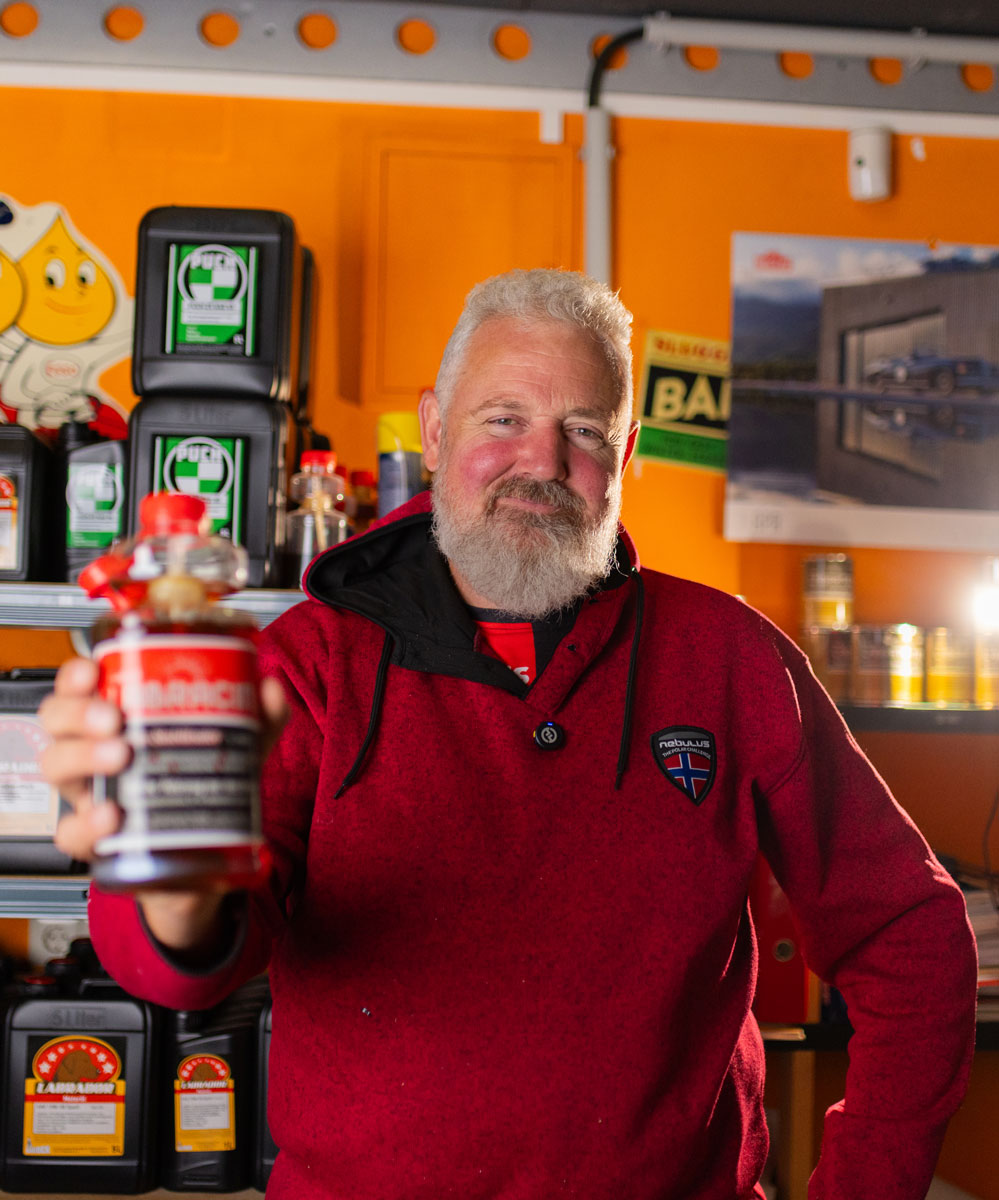
Ethanol in gasoline: How to protect your classic car
Share
How ethanol affects your vehicle's performance – and how you can protect it
Have you ever wondered why your classic car is hard to start after being parked for a long time, or why rust is forming in the fuel tank? The reason for this is often the ethanol content of modern fuels. Ethanol, hailed as an environmentally friendly alternative, can cause problems in vehicles—especially classic cars—that impair performance and longevity. Fortunately, there's a solution: LABRACIN Gasoline Stabilizer .

Why ethanol is a problem for classic cars
Ethanol is an alcohol that attracts water and triggers chemical reactions that can damage your engine. Here are the most common problems:
1️⃣ Corrosion: Water bound by ethanol promotes rust formation in the tank and on metallic components.
2️⃣ Loss of performance: Gasoline containing ethanol oxidizes during long-term storage, which lowers the octane number and reduces engine performance.
3️⃣ Drying out: Ethanol is less lubricating than pure gasoline, which can dry out rubber seals and plastic parts and make them brittle.
4️⃣ Residues: The evaporation of ethanol can cause gel-like deposits that clog injectors and carburetors.
These problems are not only annoying, but can also result in expensive repairs.
How LABRACIN protects your engine
LABRACIN Gasoline Stabilizer was specifically formulated to minimize the negative effects of ethanol. Here are its key benefits:
1️⃣ Binds water: LABRACIN emulsifies moisture in the fuel tank and thus prevents rust formation.
2️⃣ Stabilizes gasoline: It keeps the fuel fresh for up to 24 months and prevents oxidation – ideal for long periods of inactivity.
3️⃣ Cleans the fuel system: Deposits in lines and injectors are removed to ensure optimal performance.
4️⃣ Protects materials: LABRACIN protects rubber seals and plastic parts from drying out and ensures their longevity.
With LABRACIN, your classic car remains reliable and ready to go even after longer breaks.
Ethanol and long-term damage – what you should consider
The damage caused by ethanol often develops gradually and only becomes apparent after months or years. Here are the most common long-term effects:
● Rust in the tank: The combination of ethanol with water produces acetic acids that attack metal components.
● Performance problems: Oxidized gasoline leads to poor combustion and reduced driving pleasure.
● Increased wear: Without proper lubrication from a stabilizer, moving parts wear out faster.
LABRACIN offers a solution that both minimizes long-term damage and improves the performance of your vehicle.
Why your classic car needs special protection
Classic and modern cars are particularly susceptible to the negative effects of ethanol. This is because these vehicles are often idle for extended periods and their materials are not designed for modern fuels. A gasoline stabilizer like LABRACIN is therefore essential to:
● to prevent corrosion,
● to maintain engine power,
● and keep the vehicle ready to start at all times.
Motorcycles, boats and garden equipment also benefit from this additional protection.
Easy application for maximum effect
Using LABRACIN is incredibly simple: Add 1 ml of LABRACIN per liter of gasoline before refueling. This ensures the additive is evenly distributed and delivers its full protective effect. Even if overdosed, the fuel remains safe.
Conclusion: Your classic car deserves the best protection
Ethanol poses a challenge for all vehicle owners—but especially for classic car enthusiasts. With LABRACIN Gasoline Stabilizer, you can protect your engine from the harmful effects of modern fuels, extend its lifespan, and ensure effortless starts, even after extended periods of inactivity.
👉 Order now: LABRACIN gasoline stabilizer
Give your classic car the protection it needs – for many more years of driving pleasure!
